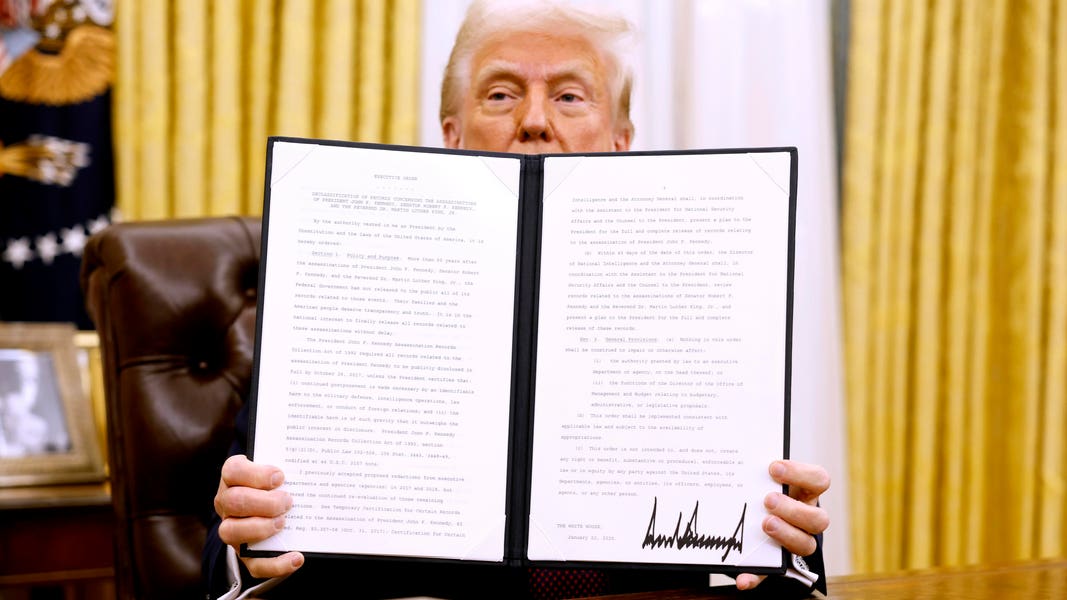
AI’s Unspoken Dilemma: The Immigration Factor
Artificial intelligence (AI) is rapidly reshaping the world, and the United States is striving to be at the forefront of this technological revolution. However, a recent plan from the Trump administration to bolster AI development has sparked debate. While the plan outlines strategies for infrastructure, data, and partnerships, it notably omits a crucial element: the role of immigration. This oversight has raised questions about the administration’s understanding of the AI landscape and its willingness to embrace the very talent that fuels the industry’s innovation. This article delves into the complexities of the situation, exploring the vital contributions of immigrants and international students to the AI sector, and the potential consequences of policies that may hinder their participation. The plan’s silence on immigration suggests a disconnect between the administration’s vision for AI and the reality of who is driving its progress. The core issue is that the plan’s silence on immigration suggests a disconnect between the administration’s vision for AI and the reality of who is driving its progress. The 23-page document, which details strategies for data centers, power generation, and international collaborations, makes no mention of the individuals—both U.S.-born and foreign-born—who are at the heart of AI research and development.
The Unseen Architects of AI: Immigrants and International Students
The AI sector thrives on human capital, and a significant portion of that capital comes from immigrants and international students. Studies reveal that immigrants have founded or co-founded a large percentage of top AI companies in the United States. Furthermore, a substantial number of graduate students in AI-related fields are international students. These individuals bring diverse perspectives, skills, and experiences that are essential for driving innovation. Why is this relevant? Because the administration’s plan overlooks these critical contributors. It focuses instead on infrastructure and job training for roles like electricians and HVAC technicians, while neglecting the academic and research communities that are the driving forces behind AI breakthroughs. Ignoring this reality could have significant implications for the United States’ ability to maintain its leadership position in AI. The success of AI in the U.S. depends heavily on the contributions of immigrants and international students. Denying or ignoring their importance is detrimental to AI’s growth.
The Clash of Policies: AI Ambitions vs. Immigration Restrictions
The Trump administration’s stance on immigration has created a challenging environment for those crafting AI policies. The administration’s policies have often restricted immigrants and international students. This contradiction puts the AI plan’s authors in a difficult position: how do they recommend policies that support AI development while adhering to the administration’s restrictive views on immigration? The previous administration’s actions, such as attempting to limit the entry of international students and removing research funding from universities, have further complicated the situation. The omission of immigration in the AI plan is, in part, a result of the political climate. Any recommendation that would encourage more immigrants and international students to work in AI would directly conflict with the administration’s immigration policies. This conflict highlights the complex interplay between policy, politics, and technological advancement. Ignoring the role of immigration will, ultimately, affect America’s position in the global AI landscape. How can they promote the talent in AI when they oppose the very group of people that are key?
A Tale of Two Approaches: Contrasting Visions for AI
The Biden administration’s approach to AI offers a stark contrast. Recognizing the critical role of immigration, it has implemented policies designed to attract and retain top talent in AI and other emerging technologies. This approach aligns with the recommendations of the National Security Commission on Artificial Intelligence, which called for liberalizing U.S. immigration laws to support AI development. The contrast between the two approaches underscores the importance of immigration policies in fostering innovation and maintaining a competitive edge in the AI race. The contrast emphasizes the impact of immigration policies on innovation and competitiveness. What would happen to the development of AI if these policies were to change or remain the same? The decision to include or omit immigration has far-reaching implications for the future of AI in the United States. One administration sees the need to attract and retain the best talent through a welcoming immigration approach, while the other seems to have a hard time deciding, and thus decides to omit any mention of immigration.
The Path Forward: Embracing Talent for AI Supremacy
The future of AI in the United States depends on embracing the diverse talent pool that exists both domestically and internationally. Policies that attract and retain skilled immigrants and international students are essential for fostering innovation, driving economic growth, and maintaining a competitive advantage in the global AI landscape. The omission of immigration from the recent AI plan raises concerns about the administration’s ability to fully realize its AI ambitions. By recognizing the pivotal role of immigrants and international students, the United States can pave the way for a future where AI not only thrives but also benefits from the creativity, skills, and perspectives of a truly global workforce. The current administration will need to decide if it wants to continue to omit international talents, or will it embrace them, as the Biden administration did?
Conclusion: The Immigrant’s Crucial Role in America’s AI Advancement
In conclusion, the recent AI plan’s silence on immigration is a significant oversight. It overlooks the contributions of immigrants and international students, who are vital to America’s AI leadership. The success of the AI industry is directly tied to the ability to attract and retain top talent from around the world. Restricting immigration policies could hinder the nation’s ability to innovate and compete globally. As AI continues to transform the world, the United States must recognize the pivotal role of immigration and embrace policies that welcome and support the diverse talent that drives this technological revolution. The United States should recognize the importance of immigration in the AI sector.



